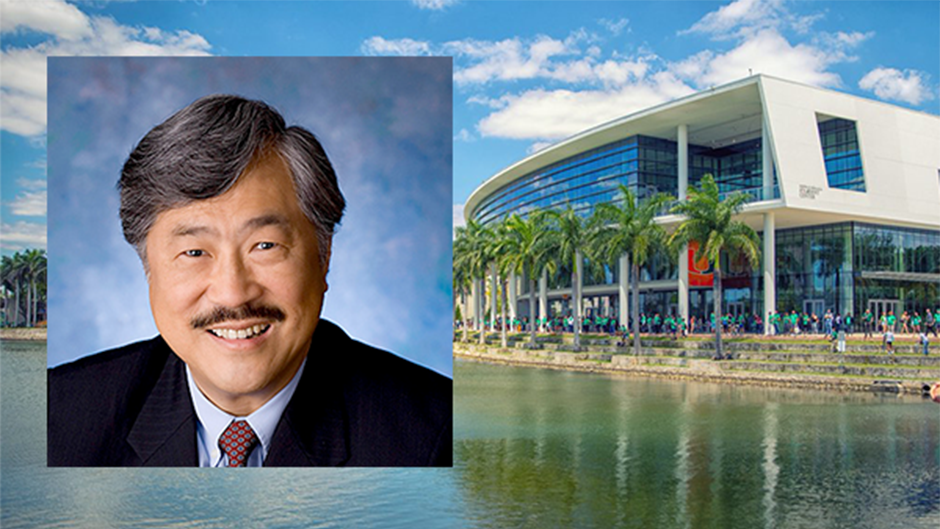James M. Tien, distinguished professor and dean emeritus of the University of Miami College of Engineering (UM CoE), has been elected to a four-year term as foreign secretary of the National Academy of Engineering (NAE).
Tien, who was elected to the NAE in 2001, will succeed Ruth A. David, retired president and CEO of Analytic Services Inc., who served one four-year term as foreign secretary.
The NAE is a private, independent, nonprofit institution that provides engineering leadership in service to the U.S. It is part of the The National Academies of Sciences, Engineering, and Medicine. As NAE foreign secretary, Tien will oversee the organization’s international activities and coordinate its contacts with engineering academies in other countries. His term begins July 1.
An internationally renowned scholar and educator, Tien joined the CoE in 2007. He served as dean of the CoE from 2007 to 2015, and became a distinguished professor in 2007, a title he still holds. His research interests include systems modeling, public policy, decision analysis and information systems.
Tien has also served as the Yamada Corporation professor at Rensselaer Polytechnic Institute (RPI). He joined RPI’s Department of Electrical, Computer and Systems Engineering in 1977; became acting chair of the department; joined a unique interdisciplinary Department of Decision Sciences and Engineering Systems as its founding chair and twice served as the acting dean of engineering. He also has held leadership positions at Bell Telephone Laboratories, at the Rand Corporation and at Structured Decisions Corporation – which he co-founded.
He also served on the Institute of Electrical and Electronics Engineers board of directors (2000-2004) and was its vice president in charge of the Publication Services and Products Board and the Educational Activities Board.
Tien earned his bachelor’s degree in electrical engineering from RPI and his PhD in systems engineering and operations research from the Massachusetts Institute of Technology.
The NAE was established in 1964 under the charter of the National Academy of Sciences (NAS) as a parallel organization of outstanding engineers. It is autonomous in its administration and in the selection of its members, sharing with NAS the responsibility for advising the federal government. NAE promotes the technological welfare of the nation by marshalling the knowledge and insights of eminent members of the engineering profession.

